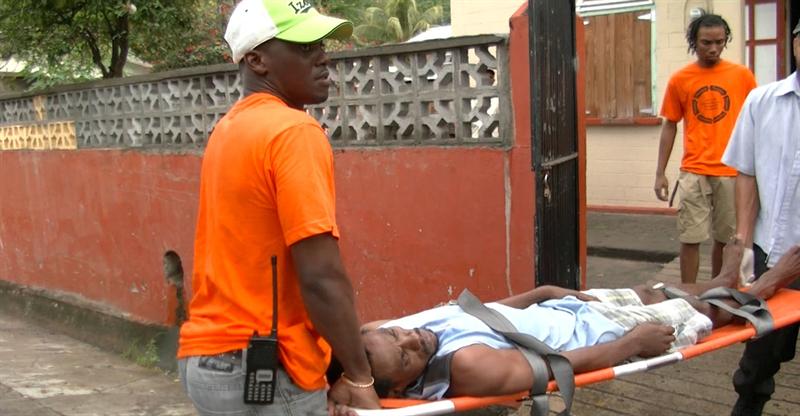The National Emergency Management Office (NEMO) in collaboration with the Pan American Health Organization (PAHO) and the Ministry of Health, recently conducted a simulation exercise at the Soufriere Hospital to test the readiness of staff to deal with an internal disaster.
 The simulation is part of PAHO’s Safe Hospital Initiative—a global initiative that seeks to ensure that health care facilitators are ready to respond to any type of disaster or emergency event.
The simulation is part of PAHO’s Safe Hospital Initiative—a global initiative that seeks to ensure that health care facilitators are ready to respond to any type of disaster or emergency event.
Lealou Reballos, PAHO Specialist for Disaster Risk Production, said the Initiative tests three key components.
“We observe the external structure of the hospital; the non-structural components like the equipment and critical services; and the functionality of the hospital in response to an emergency,” Ms. Reballos said.
The exercise simulated a laundry room explosion resulting in a fire that necessitated total evacuation of the hospital.
“It is important to ensure that staff members are fully prepared to deal with an emergency impacting the hospital,” said Andrew George, NEMO Program Development Officer. “There was an unfortunate situation a few years ago, where three patients died in a fire at the St. Jude Hospital. We wanted to ensure that if a similar situation arises, the staff will have the experience of transferring patients from the impacted area to an assembly point.”
The readiness of the Police and Fire Departments in response to the simulated emergency was also tested.
He explained that because the Soufriere Hospital had lately experienced Hurricane Tomas and the 2013 Christmas Eve trough, the staff was used to dealing with flood and hurricane related emergencies, so NEMO decided instead to simulate a fire related emergency which required the total evacuation of all patients and forced the staff to coordinate effectively with the response agencies.
“My initial assessment of the drill is that it went well. The staff knows what to do,” Mr. George said, adding the coordination and cooperation between the groups was encouraging.
Alisha Eugene, Health Disaster Coordinator for the Ministry of Health said Saint Lucia’s Health ministry has partnered on similar emergency training activities in the past including a simulated plane crash for the St. Jude Hospital and SLASPA staff, and tsunami training in Soufriere.
“Emergencies and accidents happen all the time,” she said. “The health sector has to ensure that if one does occur, our health workers know how to care for our patients, our facilities, and ourselves.”